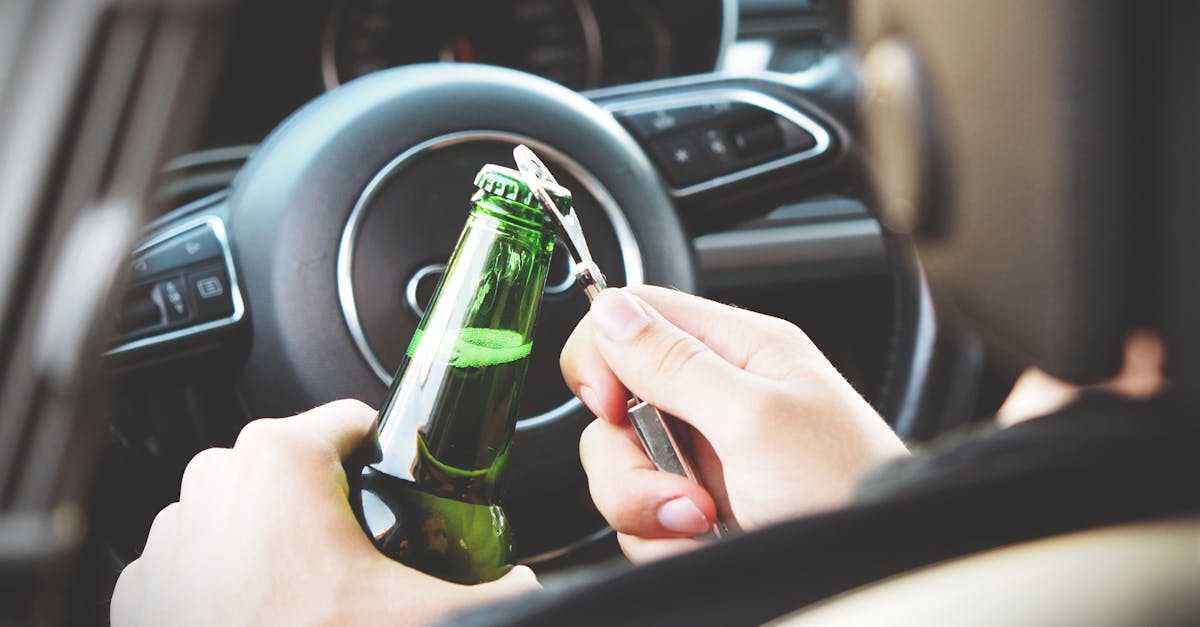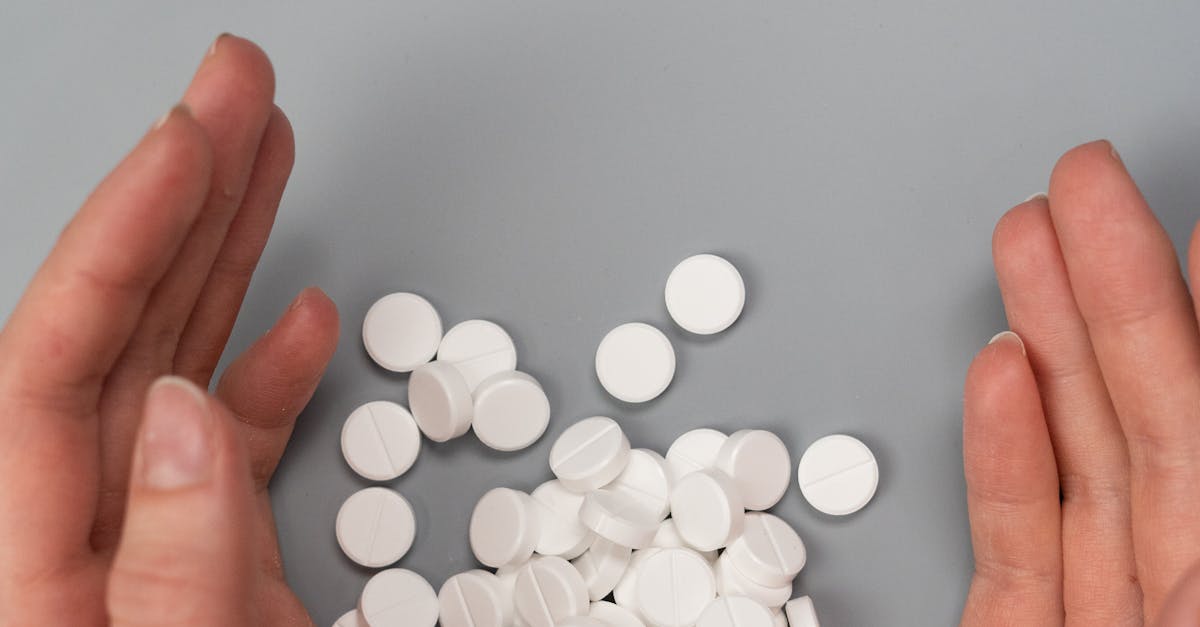Teen Drug Addiction
Teen drug addiction is a serious issue that affects both the individual and their family. With 35 percent of children having tried drugs by 8th grade and 20 percent becoming addicted, awareness is crucial. Teens often struggle with low self-esteem, anxiety, and overwhelming life circumstances, leading them to seek relief in drugs. Common signs include dramatic behavioral changes, dull eyes, and poor academic performance. If you suspect your teen is struggling with addiction, trust your instincts and communicate openly about your concerns. Seeking help early can make a significant difference in your teen's recovery journey.
Read MoreHelping a Loved One Recover From Alcohol Addiction
Helping a loved one recover from alcohol addiction is a challenging yet vital process. It's essential to recognize the signs of alcohol addiction, such as excessive preoccupation with liquor and changes in behavior. While recovery takes time and persistence, your support can make a significant difference. Interventions may be necessary to encourage your loved one to acknowledge their addiction. Showing genuine care and understanding can help them feel less alone and more willing to seek help. With patience and unconditional support, you can play a crucial role in their journey toward recovery from alcohol addiction.
Read MoreFamily Therapy with Drug Abuse and Addiction
Family therapy plays a crucial role in addressing drug abuse and addiction within families. It fosters open communication, strengthens family dynamics, and provides essential support to both the individual in recovery and their loved ones. By participating in therapy sessions, family members demonstrate their commitment to helping their loved one overcome addiction and rebuild connections. This process not only aids in recovery but also promotes healthier family relationships. Engaging in family therapy can lead to valuable insights, emotional healing, and a collective effort to combat the negative effects of substance abuse.
Read MoreEffects of Drug Addiction
The effects of drug addiction extend beyond the individual, impacting families, workplaces, and society. Users experience physical and mental health issues, leading to anxiety, depression, and risky behaviors. Pregnant women face higher rates of low birth weight and drug-exposed infants. Drug addiction also contributes to crime and violence in communities, as users often engage in illegal activities to support their habits. The societal costs are staggering, from lost productivity to increased healthcare burdens. Immediate intervention is crucial to mitigate these widespread effects and promote recovery for individuals and their loved ones.
Read MoreDrug Addiction
Drug addiction often starts as a way to escape stress or discomfort but quickly turns into a dependency that feels impossible to overcome. Many individuals find themselves trapped in a cycle where drugs provide temporary relief but lead to mental and physical addiction. Understanding the roots of drug addiction and seeking effective treatment can lead to recovery. Commitment and effort are key to achieving a drug-free life, though it doesn't happen overnight. With support, a brighter future is possible.
Read MoreDrug Addiction Support Groups
Finding the right drug addiction support group is crucial for recovery. Support groups like Narcotics Anonymous, faith-based groups, and online communities offer strength and guidance to help overcome addiction. They provide a safe space to share experiences, seek advice, and find encouragement. Whether it's through church groups, therapy recommendations, or online forums, support groups help individuals connect with peers and find hope in their journey towards a drug-free life.
Read MoreDrug Addiction Rehab
Drug addiction rehab involves more than just quitting drugs; it encompasses a variety of treatments such as behavioral therapy, cognitive therapy, and medications like methadone and naltrexone. Rehab helps individuals manage cravings, prevent relapse, and address co-occurring mental disorders. With personalized care tailored to factors like age, culture, and medical history, rehab offers a path to a drug-free life, whether through in-patient facilities or other settings.
Read MoreDrug Addiction Recovery
Drug addiction recovery is possible with the right support, including help from family, rehab facilities, and 12-step programs. Recovery involves more than overcoming physical withdrawal; it requires mental, emotional, and spiritual healing. Embrace a new mindset and change how you view life, replacing fear with faith and self-pity with gratitude. With commitment and effort, a successful drug addiction recovery can lead to a fulfilling, drug-free life.
Read MoreDrug Addiction Programs
Choosing the right drug addiction program is essential for a successful recovery. From in-patient treatment facilities to out-patient therapy, each option offers unique benefits. Look for programs that provide one-on-one therapy, family involvement, and exercise programs to strengthen both mind and body. The right drug addiction program helps address physical and psychological aspects of addiction, ensuring a comfortable setting that supports your journey toward a drug-free life.
Read MoreDrug Addiction Help
Seeking help for drug addiction is a brave and crucial step toward a healthier, drug-free life. Whether through local resources, support from family, or researching rehab facilities, it's possible to break free from the cycle of use and abuse. From drug abuse hotlines to self-help resources, find the right support and take control of your life today. Drug addiction recovery is achievable, and you deserve the chance to live a full, healthy life.
Read MoreAlcohol and Drug Addiction
Alcohol and drug addiction are serious issues that can control lives and damage families. Recognizing the signs, such as chronic bloodshot eyes and behavior changes, can help in steering towards recovery. The process may be tough, but with the right support and resources like in-patient rehab facilities and counseling services, it is possible to overcome. Admitting the existence of a problem is a sign of strength, and seeking help can lead to a healthier, addiction-free life.
Read MoreCauses of Drug Addiction
The causes of drug addiction are diverse, including genetic predisposition, low self-esteem, stress, and easy access to drugs. Biological factors like changes in the brain’s reward functions contribute to dependence, while prescription drug addiction often stems from reliance on medication for pain relief. Understanding these causes, such as family history of substance abuse and stress, is crucial for prevention and treatment. Recognizing these factors can help individuals take proactive steps to address potential risks before they lead to addiction.
Read MoreDefinition of Drug Addiction
Drug addiction is the compulsive use of drugs despite negative health or social consequences. It involves both physical dependence, where the body adapts to the drug, and psychological dependence, where the mind craves its effects. Understanding the distinction between drug use, drug abuse, and addiction is essential for identifying the signs of substance dependence. Recognizing the nature of physical and psychological dependency helps in developing effective treatment plans and offers insight into the challenges faced by those affected.
Read MoreDrug Abuse and Addiction
Drug abuse and drug addiction differ, with abuse involving the repeated misuse of substances, while addiction is characterized by an uncontrollable craving and physical dependence. Addiction results in the inability to function without the drug, leading to adverse health effects. Recognizing the signs of drug abuse can help prevent it from progressing into addiction. Seeking timely treatment is crucial for improving individual health and societal well-being. Understanding these distinctions helps in addressing and preventing drug-related issues effectively.
Read MoreDrug Addiction and Pregnancy
Drug addiction during pregnancy poses serious risks to both the mother and the unborn child, including low birth weight, developmental issues, and newborn withdrawal symptoms. Drug use can lead to complications like anemia, infections, and premature delivery. It's crucial for expectant mothers struggling with addiction to seek immediate help and treatment for a healthier pregnancy and baby. Understanding the effects of drug addiction on pregnancy can guide mothers to make better decisions for themselves and their children.
Read MoreDrug Addiction and the Family
Drug addiction can deeply affect family dynamics, causing stress, frustration, and pain for all involved. Family therapy plays a crucial role in addressing these challenges, helping families cope with feelings of anger, depression, and helplessness. Support from family members can motivate the addict to seek and remain in treatment. Understanding the impact of drug addiction on family relationships is key to fostering a compassionate and supportive environment for recovery.
Read MoreDrug Addiction and Therapy
Therapy is essential for individuals struggling with drug addiction, addressing both the physical and psychological aspects of the issue. Engaging in therapy allows individuals to explore their feelings and challenges while receiving guidance from trained professionals. Whether through group therapy or individualized sessions, therapy provides valuable support and coping strategies to aid in recovery. Overcoming drug addiction is a complex journey that is best navigated with professional help, making therapy a vital component of the healing process.
Read MoreDrug Addiction Center
A drug addiction center, also known as a rehabilitation clinic, specializes in treating drug addiction by addressing both mental and physical aspects of the disease. These centers offer various treatment options, including faith-based and secular approaches, to support individuals on their journey to recovery. Patients receive compassionate care through medical services, counseling, and therapy, enabling them to develop coping strategies for a drug-free life. Drug addiction centers foster a supportive environment, helping individuals regain hope and tools necessary for long-term sobriety.
Read MoreDrug Addiction Counseling
Drug addiction counseling is a crucial component of recovery, addressing the physical, emotional, spiritual, and interpersonal needs of the addict. Seeking counseling early is essential for building an effective support system during the recovery process. Whether through individual therapy or support groups, finding a certified and experienced counselor can significantly impact your journey to sobriety. Online counseling options also provide anonymity and connect you with others in various recovery stages. By engaging in drug addiction counseling, you can improve your chances of successfully overcoming addiction and healing both mind and body.
Read MoreDrug Addiction Facts
Understanding the facts about drug addiction is crucial in combating this complex disease that affects individuals both physically and psychologically. Drug addiction is characterized by uncontrollable cravings and compulsive behaviors, impacting the user's life and health. Factors such as genetic predisposition, social circumstances, and low self-esteem can increase the likelihood of addiction. It's essential to recognize that drug addiction can affect anyone, regardless of their background. By educating ourselves about drug use and addiction, we can take steps to prevent its devastating effects and work towards overcoming this growing epidemic.
Read More













